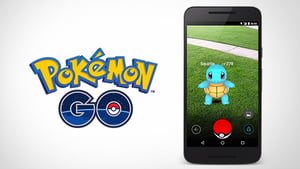 This is a recurring segment, with a recently-updated title, "Simple Answers," where I gather the questions I come across on the Internet in a given week, and provide a straightforward answer.
This is a recurring segment, with a recently-updated title, "Simple Answers," where I gather the questions I come across on the Internet in a given week, and provide a straightforward answer.
This week's question again concerns the summertime mobile-phone phenomenon, Pokemon Go.
Never mind the fact that the game is inviting traumatized war veterans and autistic children to socialize in public in a safe environment, there are clusters of people that are outright opposed to the game.
Why is that?
Certain people hate the Pokemon Go fad because they secretly regret acting superior in high school
Superiority is a a heck of a thing. It adds inches to your shoes and tightens your butthole. It's the stuff deification was made of, back when there were still COMING SOON billboards for the pyramids along the Nile, and slaves cost a nickel. Pokemon Go has divded people into two camps, imagine that?
You either are playing along with everybody, roaming around your Google Map facimilie and snatching up Pidgeys, or you hate Pokemon Go's existence.
A certain type of person hates fads. They prefer to stick to what they've grown to recognize as the order of things in this world (note to self, write a 15,000 word review of Cloud Atlas someday).
Is Pokemon Go a fad? A fad can last a few weeks or months, like that Draw Something app in 2012, or it can last a few years, like swing dance music in 1999-2000. Prior knowledge that fads have existed in the past, and the notion the gathering public usually looks back upon them in embarrassment, is something the hater-type would prefer to avoid. Station and a sense of superiority is all they've done with their lives. They only have past experiences as reference points. The joy they might have felt in participating in this magnesium-flame of excitement with Pokemon Go is not attractive enough when weighed against the potential embarrassment they could feel weeks, months, or years from now when the fad is over. They ask: will this potentially-momentary fad maintain their position?
Most said email was a fad. They said the internet was a fad. They weren't. Neither were rock 'n' roll, hip-hop, videogames, cellphones, and energy drinks.
While there is still some negative stigma around Pokemon Go's childish-looking design that puts off some people, it all still loops back to a fear of embarrassment. Some people don't want to be part of a group as large as Pokemon Go.
I was too afraid to play Pokemon Go.
Personally, I have a lot of trouble engaging with people in public. I got too anxious to play Pokemon Go just this past weekend, leading to a momentary existential crisis. I went out with the distinct intent to play it, but panicked. Weird, right? After a lifetime of hoping videogames might become commonplace, the moment they do, I still feel embarrassed.
I'll try again tomorrow.
So I understand some people's fears, but I backlash is the sign of somebody who peaked in high school, back when they were the tallest and football and clumsy, indecisive sex were the most important thing. They're still the most important things in some minds. The moment something ELSE proves such overpowering popularity, it can become internalized as a personal attack on an emotionally-underdeveloped mind.
That's why some people hate Pokemon Go: because it means they were wrong in high school. It means they're embarrassed by their participation in a fad back then: cruelty. Now they're too afraid to go back on their worldview, so they try even harder to assert themselves, lest a years-long truth be undone.
image via.

